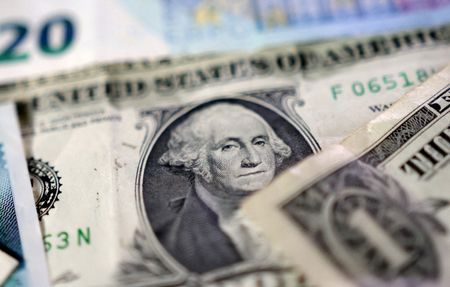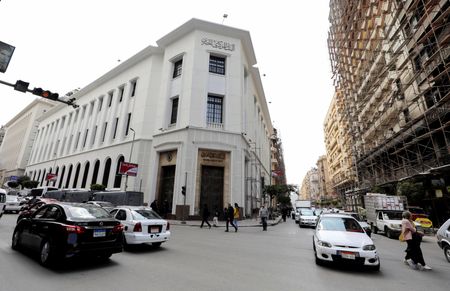HOUSTON (Reuters) -Oil prices fell on Friday as traders looked toward weaker demand in the U.S., the world’s largest oil market, and possible behind-the-scenes moves towards a deal for a ceasefire in Ukraine.
Brent crude futures for October delivery, which will expire on Friday, were down 48 cents, or 0.7%, at $68.14 by 10:18 a.m. CDT (1518 GMT), while the more active contract for November was down 52 cents, or 0.76%, at $67.46.
West Texas Intermediate crude futures were 56 cents, or 0.87%, lower at $64.04.
The market was in part shifting its focus toward next week’s OPEC+ meeting, said Tamas Varga, analyst at PVM Oil Associates.
Crude output has increased from the Organization of the Petroleum Exporting Countries and its allies, known as OPEC+, as the group has accelerated output hikes to regain market share, raising the supply outlook and weighing on global oil prices.
But those increases have not made their way into the U.S. market, where the summer driving season ends with Monday’s Labor Day holiday, raising fears about lower demand, said Phil Flynn, senior analyst with Price Futures Group.
“The pessimism about demand, I’m just not seeing it,” Flynn said. “Supply from OPEC is supposed to increase, but we’re not seeing it in the U.S. I think things are going to stay tight.”
Prices rose earlier in the week due to Ukrainian attacks on Russian oil export terminals, but reports of talks between Ukraine’s European allies about a possible ceasefire helped tamp down prices, Flynn said.
U.S. crude inventories for the week ending August 22 showed higher-than-expected draws, implying late-summer demand was still firm, particularly in industrial and freight-related sectors, analyst Ole Hvalbye at SEB bank said in a note. [EIA/S]
Commonwealth Bank of Australia commodities analyst Vivek Dhar in a note forecast Brent oil futures falling to $63 a barrel in the fourth quarter of 2025.
Investors are also watching for India’s response to pressure from the United States to stop buying Russian oil, after U.S. President Donald Trump doubled tariffs on imports from India to as much as 50% on Wednesday.
So far, India has defied the U.S. and Russian oil exports to India are set to rise in September, traders said.
“The prevalent view is that Russian sanctions are not forthcoming, and India will ignore U.S. sanction threats and continue buying Russian crude oil at heavily discounted prices,” PVM’s Varga said.
(Reporting by Erwin Seba in Houston, Seher Dareen in London, Yuka Obayashi and Sudarshan Varadhan; Editing by Susan Fenton, Kirsten Donovan and Jan Harvey)










